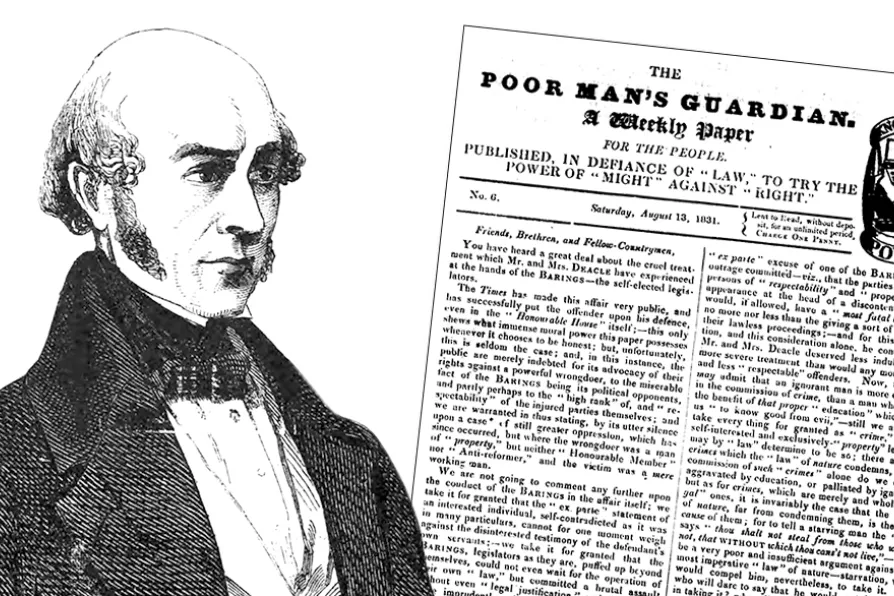The PM says Mandelson 'betrayed our values' – but ministers and advisers flock to line their pockets with corporate cash, says SOLOMON HUGHES
Henry Hetherington and the Fiend Aristocracy
MAT COWARD introduces a remarkable radical publisher and his remarkable manifesto

 LONG OVERDUE: (L to R) Portrait of Henry Hetherington, published in Reynold's political instructor, No13 February 2 1850; Poor Man's Guardian, a UK radical paper Saturday 13 August 1831 edition. Mottoes: 'Published in defiance of ‘law,’, to try the power of ‘might’ against ‘right".' 'Knowledge is power’
[(L to R) George WM Reynolds both Public domain]
LONG OVERDUE: (L to R) Portrait of Henry Hetherington, published in Reynold's political instructor, No13 February 2 1850; Poor Man's Guardian, a UK radical paper Saturday 13 August 1831 edition. Mottoes: 'Published in defiance of ‘law,’, to try the power of ‘might’ against ‘right".' 'Knowledge is power’
[(L to R) George WM Reynolds both Public domain]
HOW’S this for a manifesto?
Extirpation of the Fiend Aristocracy
Establishment of a Republic
Similar stories

‘Honest’ Tom Wharton’s 1682 drunken rampage through St Mary’s church haunted his political career, but his satirical song Lillibullero helped topple Catholic James II during the Glorious Revolution, writes MAT COWARD

MAT COWARD tells the story of Edward Maxted, whose preaching of socialism led to a ‘peasants’ revolt’ in the weeks running up to the first world war

MAT COWARD recalls the communist and pacifist aristocrat whose commitment made a difference in the Spanish civil war, the Blitz and WWII Europe

MAT COWARD remembers when the Conservative HQ at the Carlton Club got engulfed in some street-based class warfare










